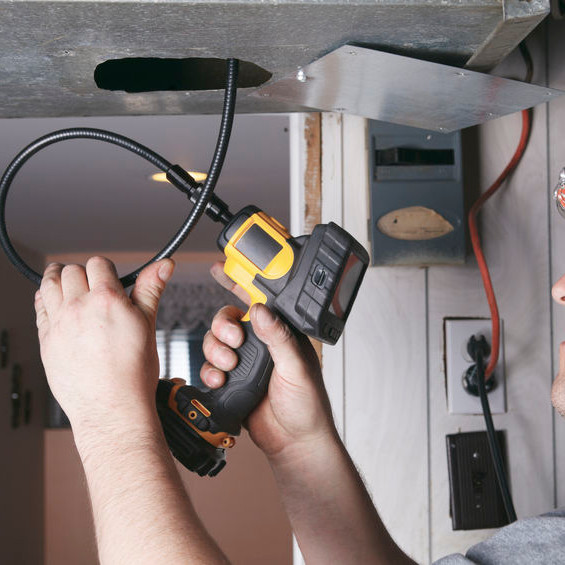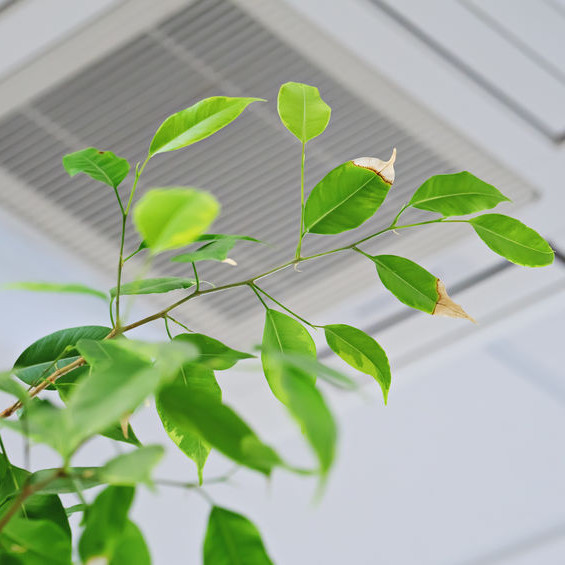
How Can I Improve Indoor Air Quality?
There are no two ways about it; indoor air quality and health are inexorably linked. There have even been studies conducted that suggest that indoor air quality and productivity are related as well. But knowing that health and indoor air quality go hand in hand is only half the battle. The question remains – what can you do to improve the quality of your indoor air? That is the question we will be tackling today as well as a slew of related questions. Here at Aire-Rite Heating & Air Conditioning, Inc., it is our goal to help you and your family live a comfortable and healthy life – at least in your home. We offer a number of indoor air quality services that take into account all the factors that play a part in your indoor air quality. If you suffer from seasonal allergies, asthma, dry throat or any other kind of sinus issues, you may be at an elevated risk of inflammation and irritation caused by poor indoor air quality. If you feel that your indoor air quality is compromised, call an expert HVAC company for an evaluation and estimate as soon as you can.
What are the Symptoms of Bad Air Quality in the Home?
The first and most important step in making your home a healthier place to breathe is knowing the symptoms of compromised indoor air quality. Indoor air quality is affected by a number of factors including humidity, ventilation, temperature fluctuations, pets, microbes, the influx of polluted outdoor air and particulate matter that is sourced from inside the home (dead skin, hair, dust mites, etc.). All of these factors and more can cause a number of symptoms. If your indoor air is in fact significantly contaminated, you may experience dry throat, trouble breathing, nausea, fatigue, frequent headaches, coughing, sneezing, dry eyes, watery eyes, itchy eyes and more. If you are experiencing any of these symptoms in the home but not so much elsewhere, chances are your indoor air quality is poor. The presence of mold in your house will also adversely affect the quality of your indoor air which leads us to the next question.
How do you tell if there are Mold Spores in the Air?
If mold is growing in or around your house, it could be a serious problem. Mold growth emits dangerous spores in the air that can affect your health and destroy your home. The most common sign that there is mold in your home is an inexplicable damp or musty smell. If you have experienced a spike in allergic symptoms like sneezing, runny nose, and irritated eyes, these may also be signs that you have mold spores floating around in your indoor air. Indoor air quality and mold testing should also go hand in hand. If you suspect mold in your home, you need to hire a professional to test your home and handle any HVAC or purification repairs needed.

What to do Next
If you have read up to this point and are concerned about your indoor air quality, you may be pondering your next move. Questions like ‘do candles purify the air?’ and ‘what can I do to improve my indoor air quality myself?’ may be racing through your mind. But don’t worry, these are good questions to ask and we will do our best to answer the most burning ones here for you.
How do you Test Indoor Air Quality?
There are many ways you can learn about indoor air quality in your home. First, you can purchase an indoor air monitor or an air purifier that comes with a built-in air quality monitoring system. You can also check your home regularly for signs of mold: discolored drywall, sunken ceilings, musty smells, etc. But the most effective way to find out what your indoor air is like is to hire a professional to test it.
Do Candles Purify the Air?
By and large, no. Your average scented candles will not actually purify the air – in fact, they can do more to pollute it. The only types of candles that can help clean your indoor air are beeswax candles because they emit negative ions that bind to airborne toxins and neutralize them.
What do you do When Air Quality is Unhealthy?
There are many steps you can take to improve the quality of your indoor air. For instance, moving your houseplants outdoors may immediately help clean your indoor air since plants can attract moisture and mold. Investing in an air filter for your HVAC unit is an effective way of limiting contaminants as small as 0.03 microns. But again, the most effective step you can take to improve indoor air quality is to seek the help of a professional. We hope you have found this post helpful and if you have any questions or concerns about your indoor air quality in Riverside, CA call Aire-Rite Heating & Air Conditioning, Inc. at (951) 336-1541 today.
